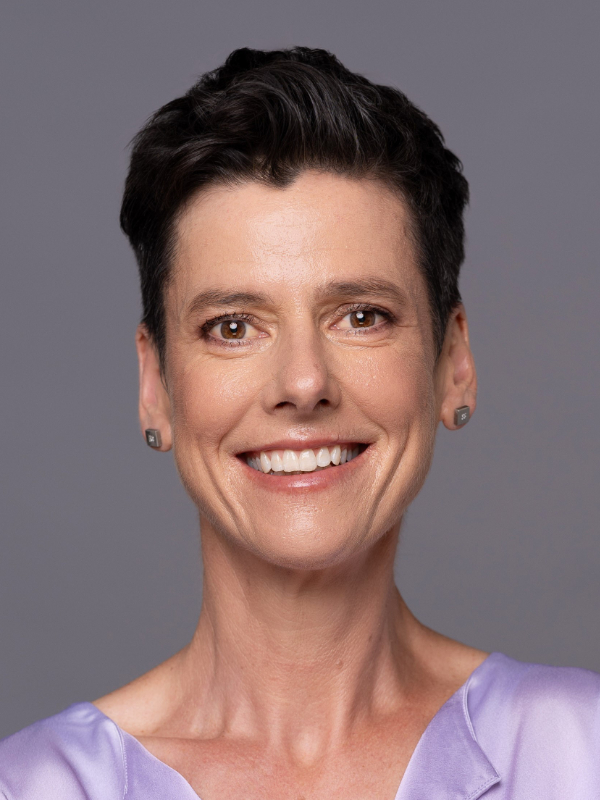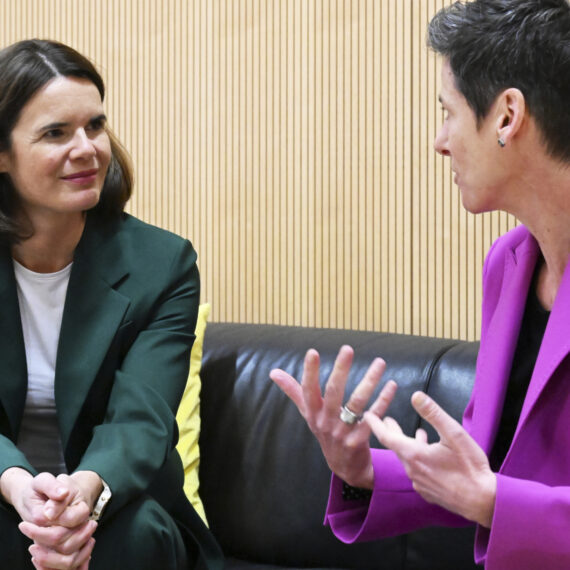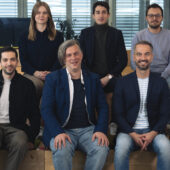Change is a constant in today’s world – amidst all of the digital possibilities and increasing technical complexity, companies are steering their way through the new demands of digital transformation. How can organisations keep their bearings in such a dynamic environment? Katrin Tschannen (CEO of Migros Online) and Sonja Betschart (co-founder of WeRobotics) explain what digital leaders should look out for and why people are always the priority.
Become a digital leader
Develop sustainable business models with the help of AI? Or digitalise internal processes with low-code platforms? Discover other areas where you can drive your transformation and become a digital leader.
Digital transformation is fundamentally changing our world. But is that for the better?
Katrin Tschannen: It’s hard to say whether digital transformation is truly making the world a better place. But it certainly has the potential to shape social developments in a positive way. Apps, for example, allow me to organise many tasks with just a few clicks. This not only helps me in my day-to-day life, but can also make it easier to juggle work and family commitments – which in turn promotes equality. At the same time, there are people who lack access to digital technology for various reasons. To reduce this divide rather than increase it, we need to make the technology user-friendly.
Sonja Betschart: I also feel that technology creates new opportunities. It connects people all over the world. It optimises processes. It allows us to challenge how things are currently done, which leads to new ideas. The same is true in the corporate world.
How do I approach digitalisation as a company?
Sonja Betschart: By asking the really critical questions. Is my business model still relevant? What do I have to change to stay fit for the future? Companies need to reflect on these and use the answers as the basis for their further development. We have to remember that technology has an impact, but ultimately people make a company what it is through their decisions and their work.
Bringing people and technology together is the job of digital leaders. What distinguishes such people?
Katrin Tschannen: Digital leaders develop visions for the future direction of their company. They have to determine whether and which technology is needed for the respective business model, because technology has to offer added value. And digital leaders know that people and their skills are more important than technology.
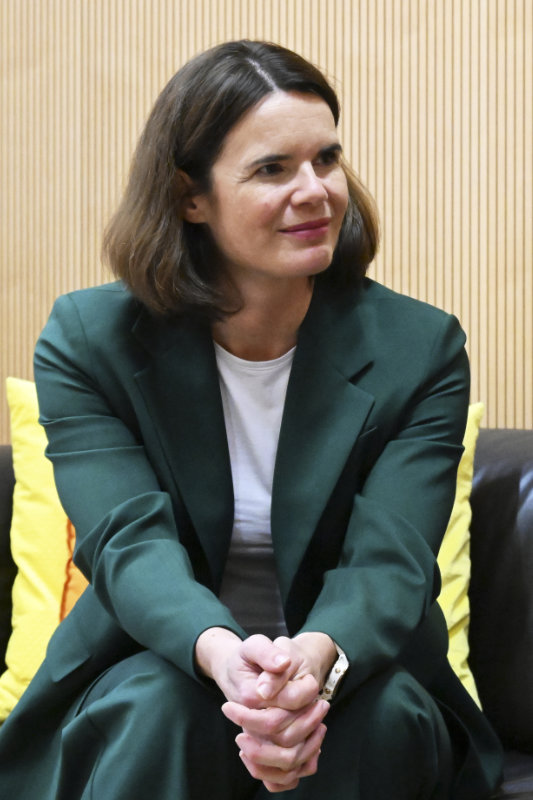
‘People and their skills are more important than technology.’
Katrin Tschannen, CEO of Migros Online
What do you mean by that?
Katrin Tschannen: Employees must be empowered to make independent decisions and develop solutions. In an increasingly specialised world, the people at the top can no longer know everything. Therefore, the strength of a digital leader lies in bringing individuals with the right expertise together, establishing a clear framework and supporting them in finding and implementing the right tools. This leads to flatter hierarchies and more participation.
How do you address the concerns of people who are dubious about new technologies?
Sonja Betschart: Communication and education are key. It’s important to engage with people who have doubts, take their concerns seriously and understand their perspectives. I’d rather listen than try to convince them of how I see things. I gain so many new insights from this because I personally love technology but the people who are less sure about it can also highlight its limitations.
Communication is an important leadership skill. A study has shown that women in managerial positions perform better in this area than their male counterparts. So are women better digital leaders?
Katrin Tschannen: The study showed that men tend to possess stronger directive leadership qualities while women perform better in communication and creativity. So, on that basis, you might say the answer is yes. But ultimately it’s about the person and their abilities, not their gender.
‘Change happens when I use the opportunities available to me and become a role model for others through this.’
Sonja Betschart, co-founder of WeRobotics
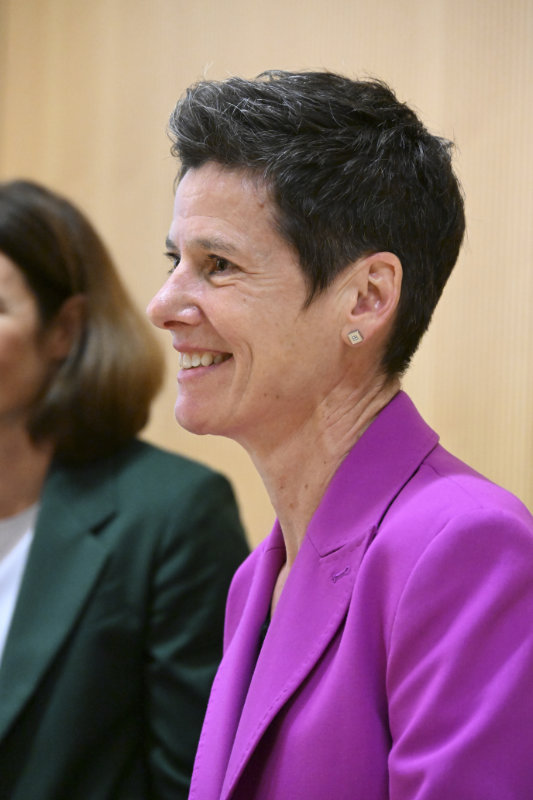
Nevertheless, women are still under-represented in technical occupations and managerial roles. How can that be changed?
Sonja Betschart: This change happens when the benefits of diversity are recognised and felt. Diversity is created when people, regardless of gender or origin, contribute their expertise and perspectives within a team. I can’t change the system, but I can influence how my business works. By doing what I can within my sphere of influence, I become a role model for others.
What are other challenges that digital leaders need to respond to?
Katrin Tschannen: Cyberattacks are amongst the biggest threats. It takes a lot of energy to strike the right balance, i.e. to ensure business continuity without getting bogged down in overly strict data governance. Change always involves sailing in unfamiliar waters. That’s where it helps to have a long-term goal and flexibly adapt your path to it.
How do you stay flexible?
Sonja Betschart: Through regular self-examination and adapting how we work. We constantly review our processes to ensure that they are still effective. This involves taking time to ‘pause and reflect’, which we regularly and proactively schedule during the working week.
What direction would you like to see technical development go in as we move forward?
Sonja Betschart: We must prioritise the ‘who’ and ‘how’ rather than the ‘what’. In other words, digital transformation needs to focus on people and the type of change – not just the latest tool.
Katrin Tschannen: While sustainability is a hot topic, I’m concerned that it is not being prioritised in digital development. Data centres alone consume enormous amounts of energy. Technology should provide sustainable solutions to current problems. Otherwise, we’re lacking a long-term perspective.
Become a digital leader
Develop sustainable business models with the help of AI? Or digitalise internal processes with low-code platforms? Discover other areas where you can drive your transformation and become a digital leader.
Our interview partners
Katrin Tschannen and Sonja Betschart were speakers at the Swisscom Business Days (held in German) in Lucerne.
Katrin Tschannen, CEO of Migros Online

Katrin Tschannen has been CEO of Migros Online (formerly LeShop) since March 2020, and is therefore responsible for around 900 employees and CHF 350 million in sales. She discovered her passion for agile leadership methods and digital product development during her previous role in category management and dealer relations at Digitec Galaxus. Prior to that, she headed strategy and change management projects at Concreda and was also a member of Micasa’s division management as Head of Point of Purchase. Katrin Tschannen studied business and production sciences at ETH, specialising in technology and innovation management.
Sonja Betschart, co-founder of WeRobotics
Sonja Betschart is a passionate social entrepreneur, Ashoka Fellow and Forbes 50 over 50 member, with a long career in both the non-profit and for-profit sectors. She co-founded WeRobotics in 2015. The organisation is active in more than 40 countries in Africa, Asia and Latin America. WeRobotics supports local experts in drone, data and AI technologies through the Flying Labs Network, facilitating a sustainable and thriving future for their communities. Sonja was elected to Switzerland’s 100 Digital Hall of Fame in 2022 and named one of the Top 100 Women in Social Enterprise in 2023. She also received the Women in Tech Europe Award for Global Leadership in 2024.
